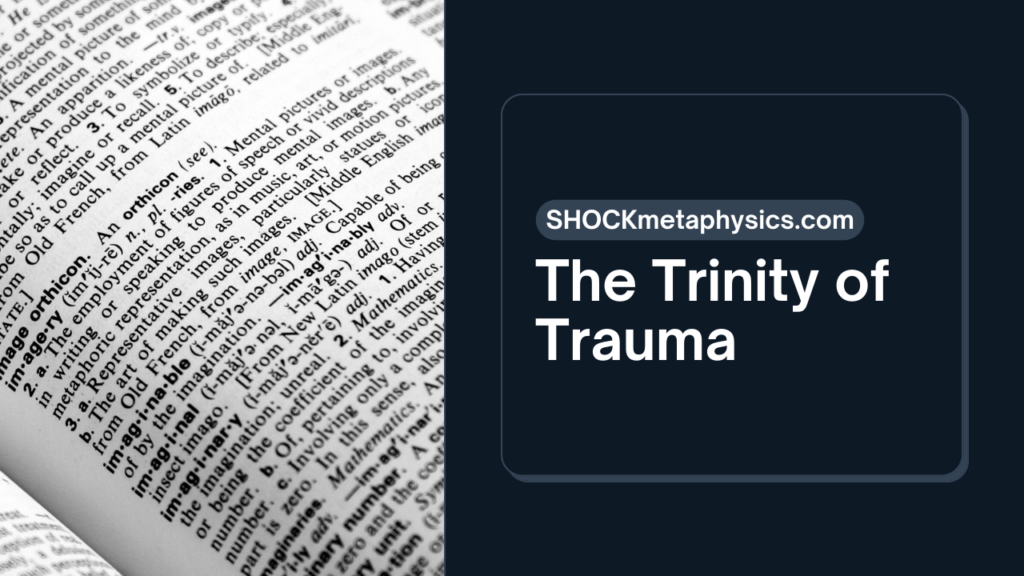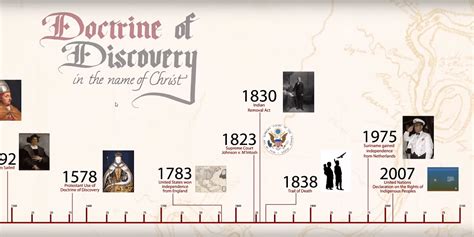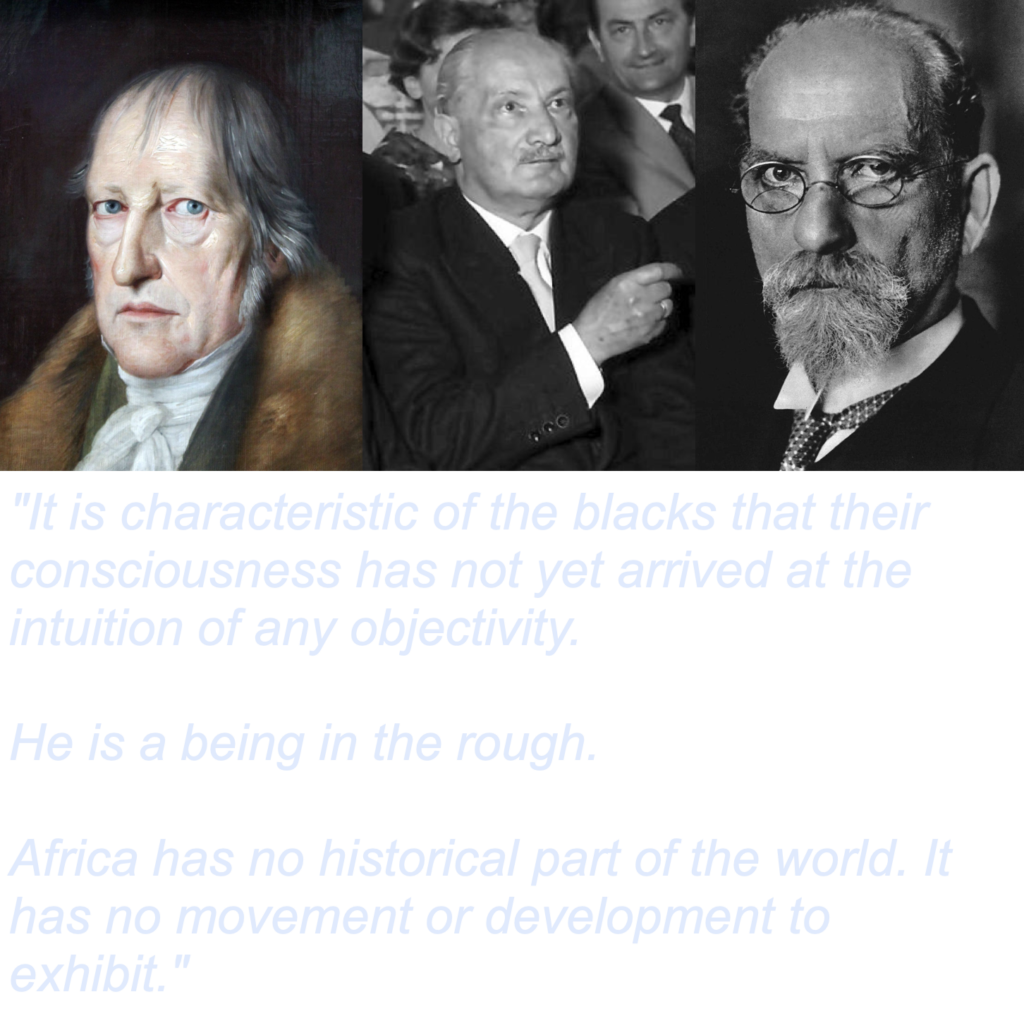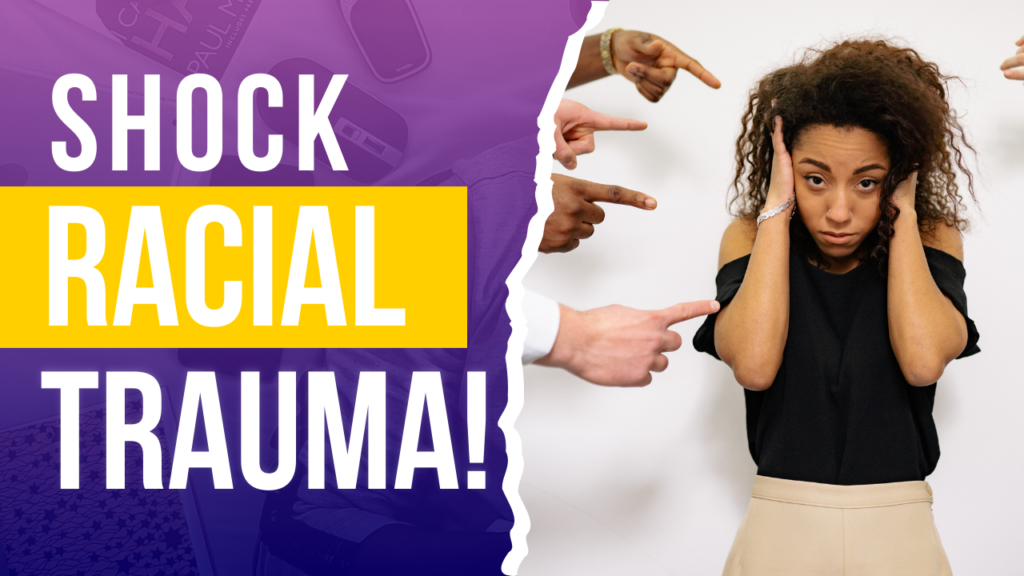
Researched and Curated By Rev. Dr. Philippe SHOCK Matthews
(Black Trauma and Mental Health Specialist | Prompt Eng | GPT Dev | Research Scientist | Africana Phenomenologist | Black AI Corsortim co-Founder)
In this SHOCKmetaphsycis.com blog entry, I will delve into the deep-rooted impacts of systemic racism and oppression on African diasporic communities. My research paper, “The Trinity of Black Trauma,” sheds light on the multifaceted nature of Black suffering and offers insights into potential avenues for healing and restoration.
1 – The Doctrine of Discovery: Seeds of Colonialism

At the heart of this historical trauma lies the Doctrine of Discovery, a concept originating from 15th-century papal decrees. This doctrine provided the theological and legal justification for European powers to claim and colonize non-Christian lands. The implications of this doctrine were far-reaching, setting the stage for centuries of exploitation and oppression of indigenous peoples worldwide.
The papal bulls issued by Pope Nicholas V and Pope Alexander VI in the 1450s and 1490s formalized this doctrine, granting Portugal and Spain the right to conquer, subjugate, and enslave non-Christian inhabitants of newly discovered lands. This religious and legal framework became the foundation for European colonialism, profoundly impacting the fate of indigenous peoples across the globe.
Christopher Columbus’s voyages, financed by Spain’s Catholic monarchs, were directly influenced by this doctrine. His explorations catalyzed the large-scale conquest and colonization of the Americas, forever altering the socio-political landscape of the Western Hemisphere.
2 – The Invention of “White People” and Supremacy
As European colonization expanded, so did the need to create and enforce racial boundaries. The year 1681 marks a significant point in the legal codification of racial distinctions in the American colonies. Laws began to use the term “white” to categorize a privileged group, laying the groundwork for a racial hierarchy that would persist for centuries.
Anti-miscegenation laws, such as those enacted in Maryland and Virginia in the late 17th and early 18th centuries, were part of this broader effort to define and enforce racial boundaries. These laws not only prohibited interracial marriages but also contributed to the construction of a social order based on racial categorization.
The legal and social construction of race, including the categorization of individuals as “white,” had long-lasting implications for American society. It influenced the development of racial attitudes, laws, and policies that continue to shape societal dynamics today.
The Phenomenology of Black Trauma
To fully grasp the depth of Black trauma, we must examine it through the lens of Africana phenomenology. This philosophical approach focuses on the distinct lived experiences of people of African descent, grounding analysis in their unique socio-cultural and political histories.
Africana phenomenology emerged as a response to traditional Western philosophical paradigms that often failed to account for the specificities of Black life. Seminal thinkers like W.E.B. Du Bois, Frantz Fanon, and Lewis Gordon made critical contributions to this field, offering conceptual frameworks to elucidate core elements of the Black lived experience within white-dominant social structures.
Du Bois’s notion of “double consciousness” describes the divided internal state resulting from seeing oneself through a racialized societal lens. This concept speaks profoundly to the turmoil of duality and fractured identity negotiations endured by African-descended groups. Fanon’s work on processes of alienation further illuminates the profound psychic and social disconnection experienced by colonized Black subjects within white socio-cultural domination.
3 – Historical Misrepresentations and Their Impact

The work of certain European philosophers, despite their influence on Western thought, has contributed to the perpetuation of harmful racial stereotypes and ideologies. Georg Wilhelm Friedrich Hegel’s assertion that Black consciousness had not yet arrived at the intuition of objectivity, and that Africa had no historical part in the world, exemplifies the Eurocentric views that have long marginalized African histories and contributions.
Such perspectives have been widely critiqued for their racist underpinnings and lack of understanding of African societies and their historical complexities. These misrepresentations have had far-reaching consequences, contributing to the dehumanization of Black people and the justification of colonialism and slavery.
Martin Heidegger’s association with National Socialism during the 1930s further complicates the philosophical landscape. While Heidegger’s work primarily focused on ontology and phenomenology, his political affiliations raise questions about the intersection of philosophy, politics, and racial ideologies. The Nazi regime’s racial policies, which marginalized and persecuted Black individuals in Germany and occupied territories, demonstrate the real-world consequences of such ideologies.
The Pearl Harbor Effect and Black Trauma
The cumulative impact of these historical traumas has created what I refer to as the “Pearl Harbor effect” in relation to Black experiences. This concept refers to sudden, impactful events that cause immediate and significant changes in public perception, policy, or action. In the context of Black trauma, it highlights how centuries of oppression, dehumanization, and systemic racism have created a state of perpetual crisis and vigilance within Black communities.
Paths to Healing and Restoration
Addressing the deep-rooted trauma inflicted upon African diasporic peoples requires a multifaceted approach. Matthews emphasizes the need for:
- Acknowledgment of historical truths: Confronting and correcting historical misrepresentations is crucial for healing. This includes recognizing the rich histories and contributions of African civilizations that have long been overlooked or dismissed.
- Advancing racial equity: Efforts must be made to dismantle systemic racism in education, mental health services, economic strategies, and governance.
- Centering marginalized perspectives: Prioritizing the voices and experiences of Black individuals and communities is essential for developing effective healing strategies.
- Community-led healing initiatives: Supporting culturally sensitive mental health practices and community-based programs can help address the psychological and emotional impacts of historical trauma.
- Reparative justice: Acknowledging the economic exploitation and disenfranchisement resulting from slavery and colonialism, and working towards equitable distribution of resources and opportunities.
- Education and representation: Ensuring accurate representation of Black histories and achievements in educational curricula and public discourse.
- Intersectional approach: Recognizing the interconnected nature of various forms of oppression and addressing them holistically.
Conclusion: A Call for Collective Uprising
My analysis compels us to critically interrogate philosophical renderings and political maneuvers that fail to center, value, and learn from marginalized lifeworlds. The ethical imperative is clear: we must dismantle systemic invisibility and obstruction of non-dominant epistemologies.
The task ahead involves a collective uprising rooted in social justice – bold, unrelenting efforts toward equitable distribution of power and resources to secure the livelihood and dignity of all. This work is not just about healing past wounds but about creating a future where the full humanity and potential of all individuals, regardless of race, can be realized.
As we confront the trinity of Black trauma – the Doctrine of Discovery, the invention of white supremacy, and the historical misrepresentations and their impact – we are called to action. It is through acknowledging our shared history, challenging harmful ideologies, and working collectively towards justice that we can hope to heal the deep wounds of the past and create a more equitable future for all.
The journey towards healing and reconciliation is long and complex, but it is a necessary one. By understanding the roots of Black trauma and committing to meaningful change, we can work towards a world where the dignity and humanity of all people are recognized and celebrated. This is not just a task for Black communities but a collective responsibility that requires the engagement and commitment of all members of society.
As I elucidate in my research paper, the path forward demands “a collective uprising rooted in social justice” – a call to action that resonates now more than ever as we confront the legacies of historical trauma and strive for a more just and equitable world.
Nothing is wrong with Black people…Something Happened to Black People!
Ase. And So It Is!
Brought To You By…
- [IMMEDIATE DOWNLOAD] Know Your Rights eBook by the Law Office of Keith J. Staten https://bit.ly/4bD3MbK
- Enhancing Cognitive Performance: The Power of Neuromelanin Boosters https://t.ly/S-ePs
- FREE web series: Nothing is Wrong with Black People…Something Happened to Black People: https://bit.ly/3FJCsLo
- BlackTraumaGPT http://blacktraumagpt.com/
- MyGuardianDoc™ https://bit.ly/3TlgPaE – Your One-Stop for On-Demand Compassionate Medical Guidance, Urgent Care, Primary Care, and Virtual Second Opinions, all provided by licensed Medical Doctors.
Enjoying Our Content?
Become a member of our Patreon to get the latest research on Racial Black Trauma and learn the hidden science behind why 1st Frequency Black people are God’s/Amma’s greatest creation! https://www.patreon.com/revshock. Or buy Rev. SHOCK a Coffee! https://bit.ly/3yg5D7A


Book A Discovery Call
Are you ready to SHOCKtrauma? Click HERE now to book a discovery call with Rev. Dr. Philippe SHOCK Matthews

Get Social with Doc SHOCK:
PATREON: https://t.ly/mjksf | REV. DR. SHOCK (PERPLEXITY PAGE): https://t.ly/ppjwh | SOLO: https://solo.to/revshock | BIO: https://t.ly/Ko_y_ | BLOG: https://t.ly/j6bh0 | PODCAST: https://t.ly/cB5GD | ENDORSEMENT: https://t.ly/jFErO | THREADS: https://t.ly/SoKkT | IG: https://t.ly/XsN8f | FB: https://t.ly/R3r9Y | X: https://t.ly/iJ-wy | LINKEDIN: https://t.ly/GZ0pe | TIKTOK: https://t.ly/zfp60 | BLACK TRAUMA GPT: https://t.ly/vswbs | BLACK AI CONSORTIUM: https://t.ly/uiRZN | BOOKS BY PM: https://t.ly/vvHMd
